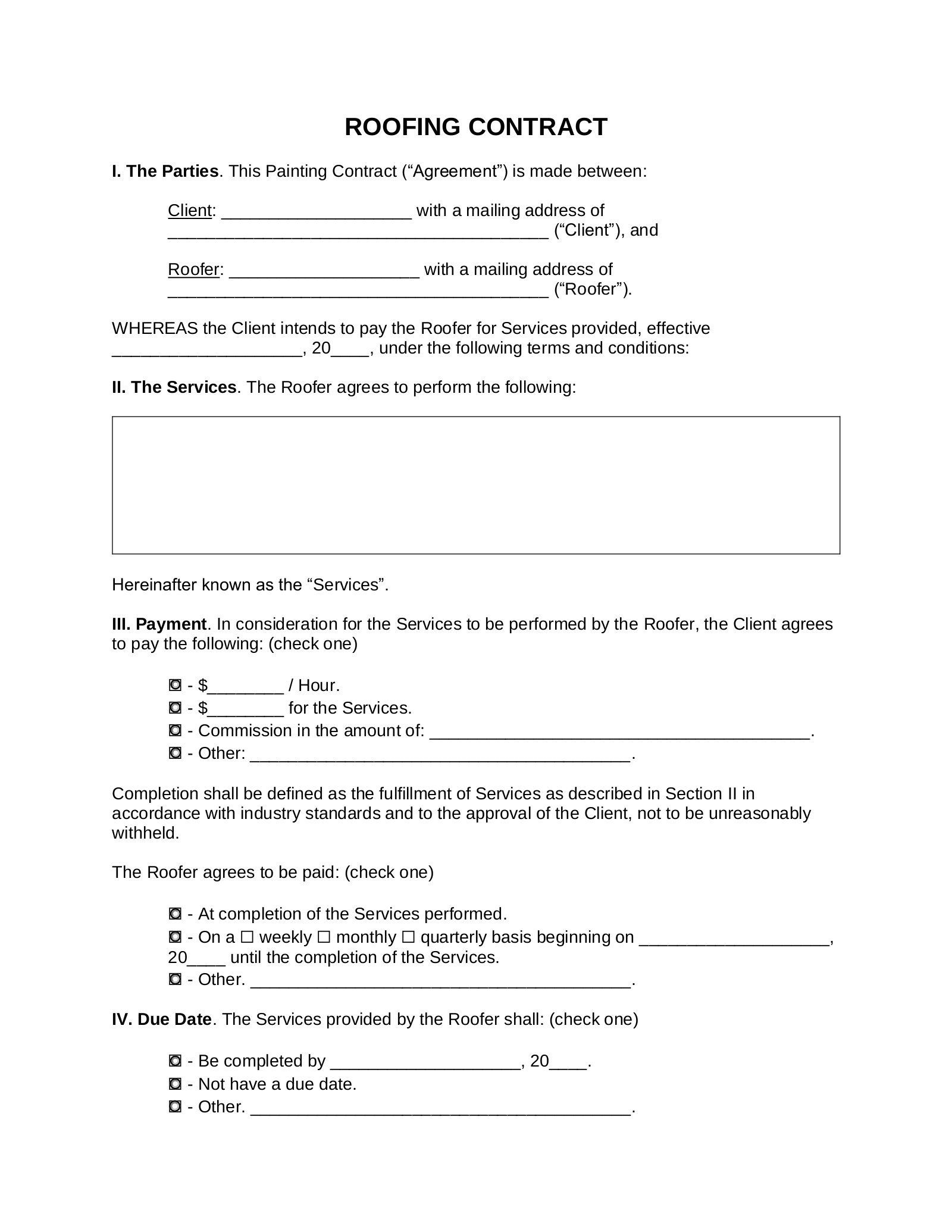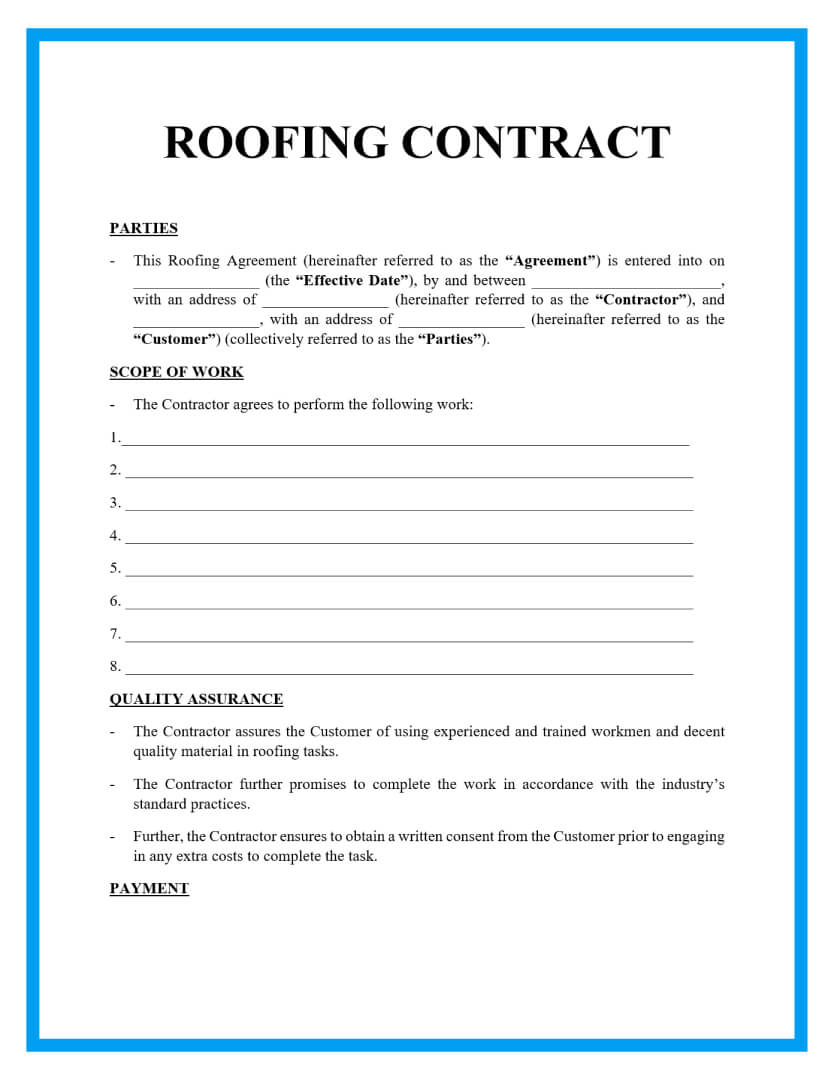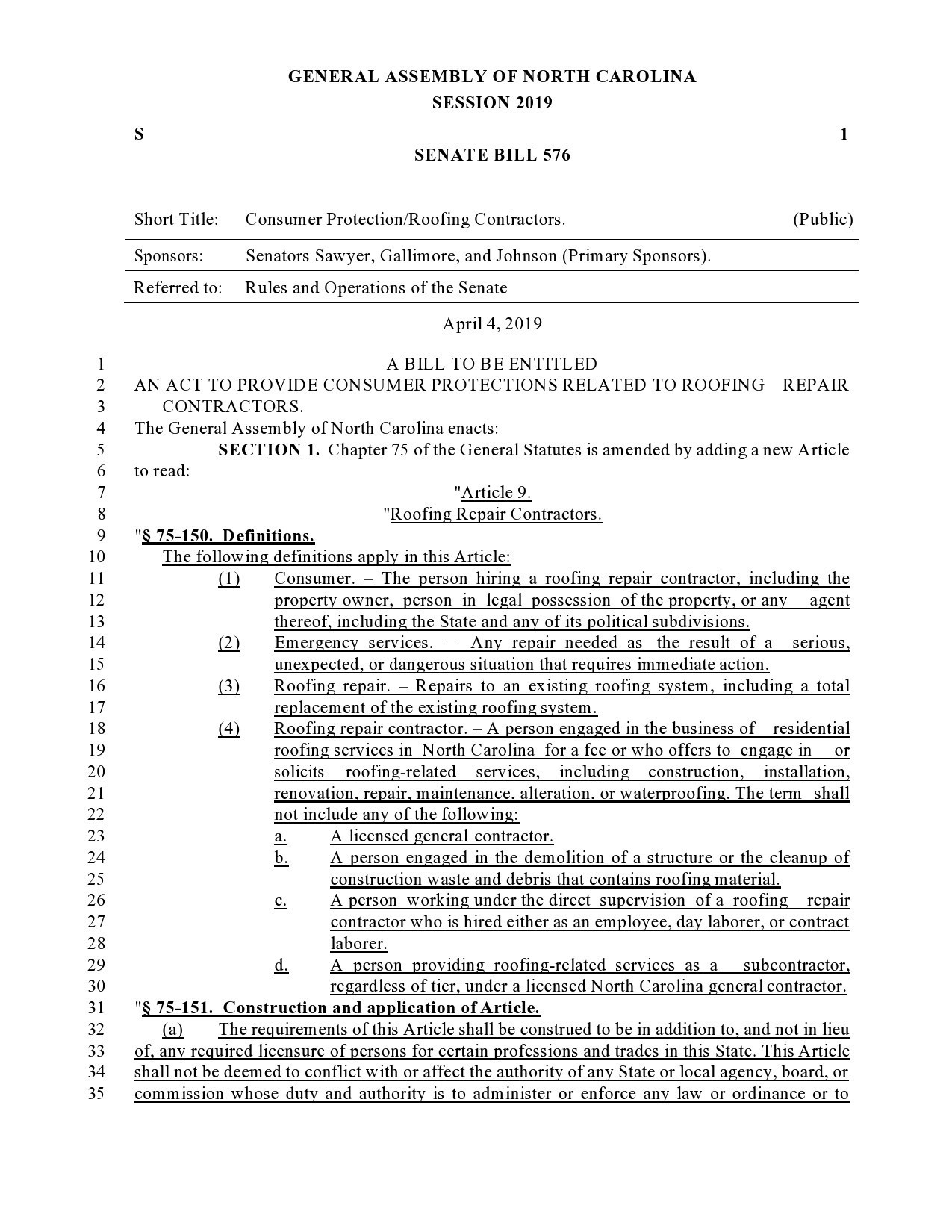
Are you in need of a roofing contract for your upcoming project? Look no further than roofing contracts.
In this comprehensive guide, we will explore everything you need to know about roofing contracts, including what they are, why they are important, how to use them effectively, and tips for successful implementation. Whether you are a homeowner looking to hire a roofing contractor or a contractor looking to streamline your business processes, a roofing contract is a valuable tool to have in your arsenal.
What is a Roofing Contract?
A roofing contract is a legally binding agreement between a homeowner and a roofing contractor that outlines the scope of work, timeline, costs, warranties, and other important terms and conditions associated with a roofing project.
These contracts are typically used to protect both parties involved in the project and ensure that the job is completed to the satisfaction of all parties. Roofing contracts can be easily customized to fit the specific needs of each project and can be downloaded and printed for convenience.
1. Customizable Templates:
Roofing contracts often come in the form of customizable templates that can be easily edited to include the specific details of your project. This makes it easy to create a contract that is tailored to your unique needs and specifications.
2. Legal Protection:
By using a roofing contract, both the homeowner and the contractor are legally protected in the event of any disputes or issues that may arise during the project. Having a written agreement in place can help prevent misunderstandings and ensure that all parties are on the same page.
3. Clarity and Transparency:
Roofing contracts provide clarity and transparency for all parties involved in the project. By clearly outlining the scope of work, costs, timeline, and other important details, everyone knows what to expect and can hold each other accountable throughout the project.
4. Professionalism:
Using a roofing contract demonstrates professionalism and reliability. It shows that you take your business seriously and are committed to providing quality service to your clients. This can help build trust and credibility with potential customers.
5. Streamlined Process:
Having a roofing contract in place can help streamline the project management process. With all the important details laid out in writing, there is less room for confusion or miscommunication, making it easier to stay organized and on track.
Why are Roofing Contracts Important?
Roofing contracts are important for a number of reasons. They help protect both the homeowner and the contractor, ensure clarity and transparency throughout the project, and demonstrate professionalism and reliability. By using a roofing contract, you can avoid potential conflicts, misunderstandings, and disputes, and ensure that your roofing project is completed successfully and to your satisfaction.
1. Legal Protection:
One of the most important reasons to use a roofing contract is for legal protection. In the event of any disputes or issues that may arise during the project, having a written agreement in place can help protect both parties and provide a clear framework for resolving conflicts.
2. Clarity and Transparency:
Roofing contracts help provide clarity and transparency for all parties involved in the project. By clearly outlining the scope of work, costs, timeline, and other important details, everyone knows what to expect and can hold each other accountable throughout the project.
3. Professionalism:
Using a roofing contract demonstrates professionalism and reliability. It shows that you take your business seriously and are committed to providing quality service to your clients. This can help build trust and credibility with potential customers.
4. Risk Management:
Roofing contracts can help mitigate risks associated with roofing projects. By clearly defining the responsibilities of each party, setting expectations, and outlining procedures for handling unforeseen circumstances, you can minimize the potential for disputes and ensure a smoother project completion.
5. Peace of Mind:
Having a roofing contract in place can provide peace of mind for both the homeowner and the contractor. Knowing that all the important details are documented and agreed upon can help alleviate stress and uncertainty throughout the project.
Roofing Contract: How to Use Them Effectively
Now that you understand the importance of roofing contracts, let’s explore how to use them effectively. Whether you are a homeowner hiring a roofing contractor or a contractor looking to streamline your business processes, following these tips can help you make the most of your roofing contracts and ensure a successful project outcome.
1. Customize the Contract:
When using a roofing contract, be sure to customize it to fit the specific details of your project. Include information such as the scope of work, materials to be used, costs, timeline, and any other important terms and conditions that apply to your project.
2. Review and Understand:
Before signing a roofing contract, take the time to review and understand all the terms and conditions outlined in the agreement. Make sure you are clear on what is expected of both parties, the timeline for completion, and any warranties or guarantees that are included.
3. Seek Legal Advice:
If you are unsure about any aspect of the roofing contract, consider seeking legal advice. A lawyer can help you understand the terms of the contract and ensure that your rights are protected throughout the project.
4. Communicate Clearly:
Effective communication is key to using roofing contracts successfully. Make sure that all parties involved in the project are aware of the terms and conditions of the contract and are on the same page regarding expectations, timelines, and costs.
5. Keep Records:
Once the roofing contract is signed, be sure to keep a copy for your records. This will help you refer back to the agreement if any issues arise during the project and can serve as a reference point for resolving disputes.
Examples of Roofing Contracts
To give you a better idea of what a roofing contract looks like, here are a few examples that you can use as a reference when creating your contract:



Tips for Successful Implementation of Roofing Contracts
To ensure the successful implementation of roofing contracts, consider the following tips:
- Tip 1: Clearly define the scope of work and expectations for both parties.
- Tip 2: Include detailed cost estimates and payment schedules in the contract.
- Tip 3: Establish clear communication channels for addressing any issues that may arise during the project.
- Tip 4: Document any changes or amendments to the contract in writing and have all parties sign off on them.
- Tip 5: Follow up with a post-project evaluation to ensure that all terms of the contract were met satisfactorily.
By following these tips and best practices, you can make the most of your roofing contracts and ensure a smooth and successful roofing project from start to finish. Remember, a well-written and carefully executed contract is the foundation for a successful business relationship and project outcome.
Roofing Contract Template – Download
- Free Student Reference Letter Template (Word) - February 22, 2026
- Free Printable Greeting Card Template - February 19, 2026
- Printable Homeschooling Schedule Template - February 18, 2026